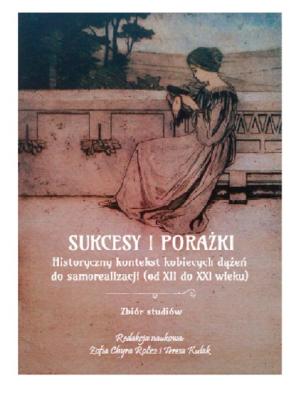Macierzyństwo ̶ samorealizacja kobiety? Stanowisko publicystyki „Bluszczu” w latach międzywojennych
Streszczenie
he paper presents a discussion on motherhood and the model of a good mother, taking place with varying intensity in the "Bluszcz" weekly in the interwar period. In total, however, not many articles were devoted to this topic. The reason for this was the fact that "Bluszcz" was a specialized magazine devoted to "literary and social" matters. Motherhood, understood as a cultural construct, defines on the one hand a variable relationship between mother and child and, on the other, between mother and society and between woman and man in the sense that the birth of a child affects marriage and changes the perception of a woman in society. Motherhood is also closely related to how femininity is understood and defined. In the Polish reality, the figure of ‘Matka Polka’ (Polish Mother) is a strong co-defining element of ‘motherhood’. Journalists of “Bluszcz” pointed out that the changes in the way a mother's role was defined were influenced by economic reality, cultural progress, and emancipation processes, including, first of all, granting women political rights. They noticed difficulty in combining professional work with family duties. They pointed to the need for greater involvement of the state in caring for mother and child. They tried also to perceive motherhood as a kind of social project in which the mother was to be a conscious and educated caregiver and educator for her child. The discourse on motherhood that occurred in “Bluszcz" clearly demonstrated how traditional, well-established beliefs concerning the role of the mother clashed with the requirements of the new times. Therefore, they tried to look for and build a model combining those two perspectives. Unfortunately, reading ‘Bluszcz’ articles, I could not find any references that would explicitly define motherhood as a way to self-realization. It was also difficult to find whether motherhood was treated as a fulfilment of a woman’s potential at that time, and, if so, what kind of women were of that opinion.
Pobrania
Opublikowane
Licencja

Utwór dostępny jest na licencji Creative Commons Uznanie autorstwa – Użycie niekomercyjne 4.0 Międzynarodowe.





